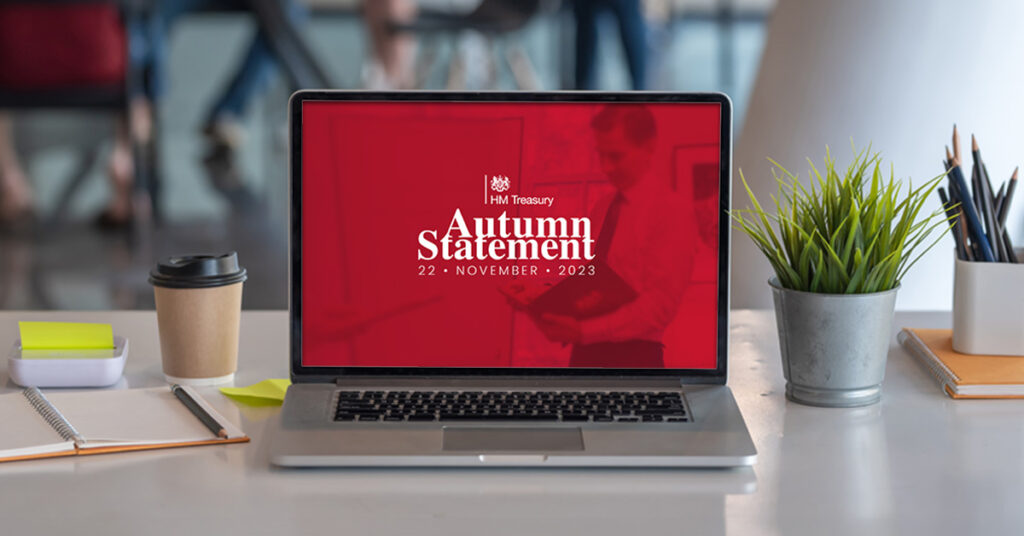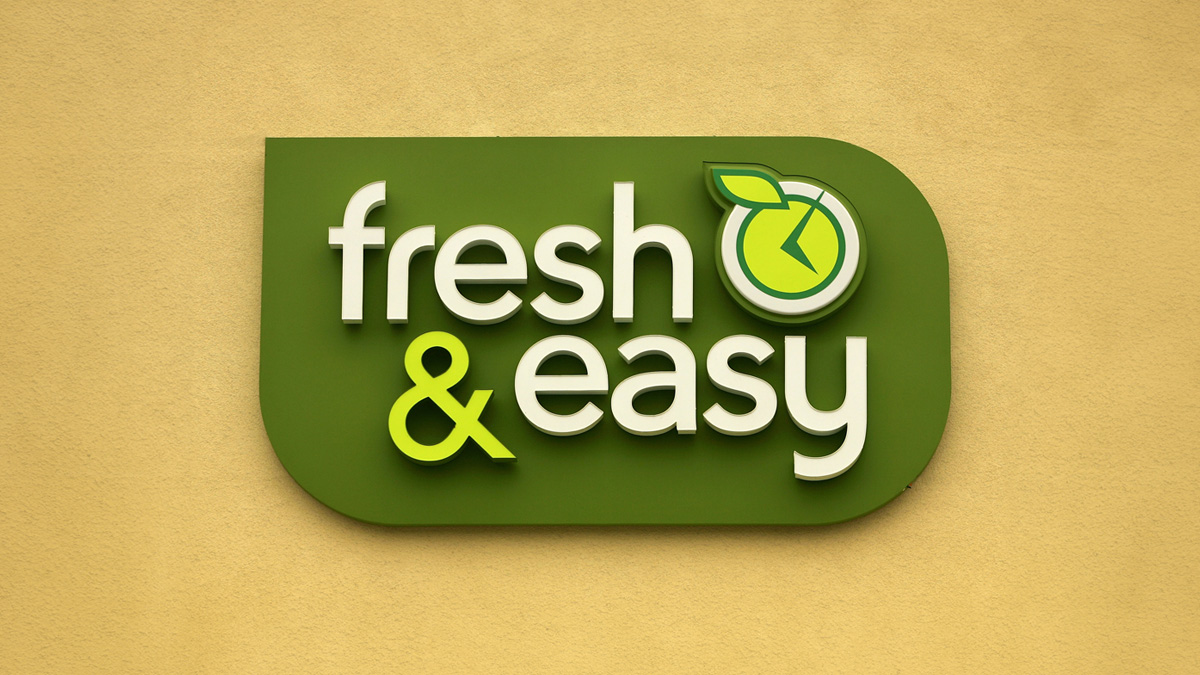Autumn Statement 2023: What to expect

With the Autumn Statement taking place tomorrow, Jeremy Hunt will set out the government’s latest plans for tax and public spending.
Ahead of tomorrow’s address, the chancellor has said, “I will focus on how we boost business investment and get people back into work to deliver the growth our country needs.”
We’ve collated everything that’s rumoured to be taking place:
£10bn tax cut for small businesses
The Daily Mail reports that Jeremy Hunt is considering a £10bn cut in business taxes in order to help prevent a recession next year. This follows a study by the Resolution Foundation think-tank which suggests the chancellor may have £13bn in “fiscal headroom” because of stealth taxes, which is double the level forecast for the spring budget.
However, the Resolution Foundation has said the increase in headroom was largely illusory as inflation has also meant increased costs for the government. The Treasury has previously warned that cuts in personal taxes are unlikely to occur too.
Following official forecasters telling the Treasury that it has more than £20bn than expected in the budget, the chancellor is considering lowering taxes for small businesses, reports The Independent.
Tweak to business investment tax
Government insiders have said the chancellor was considering extending the full expensing capital allowance scheme by a year and making full expensing permanent, according to the Financial Times.
The scheme is currently set to expire in 2026 and allows businesses to deduct the full cost of an investment in IT equipment, plant or machinery the year it is incurred from the tax on their profits.
Income tax cuts
Although the chancellor has ruled out cutting taxes so far, immigration minister Robert Jenrick told the BBC that the government will consider tax cuts if it’s able to halve inflation by the end of the year.
Rishi Sunak said in January that halving inflation by the end of 2023 was one of the government’s five key pledges. Inflation was at 10.7% in the three-month period between October and December 2022, indicating the government aims to reduce inflation to 5.3%.
The inflation rate for October dropped to 4.6%, indicating the government has fulfilled its earlier pledge ahead of the Autumn Statement.
Fuel duty rise
Treasury officials are pushing Jeremy Hunt to increase fuel duty for the first time in more than a decade, reports The Telegraph.
Then-chancellor Rishi Sunak cut fuel duty by 5p back in March 2022, but The Telegraph claims Treasury officials have told Hunt to raise the rate by at least 2p in order to recover the £5bn that has apparently been lost each year since it was reduced.
This would mean fuel duty would rise to 55p for petrol and diesel.
Living wage rise
During the Conservative Party Conference in October, Jeremy Hunt unveiled that the UK’s National Living Wage for workers aged 23 and over will rise from £10.42 to at least £11 an hour.
The wage rise is expected to come into effect in spring 2024 and will benefit nearly two million UK workers, according to the chancellor.
£30bn investment in infrastructure
The National Institute for Economic and Social Research (NIESR) has said the chancellor risks condemning Britain to a decade in the doldrums unless he pledges £30bn a year to upgrade public infrastructure during the Autumn Statement, reports The Guardian.
Researchers at the think tank said Hunt had more scope for a bold package than generally believed because freezing income tax allowances and thresholds during a period of a time of high inflation had meant government revenues had grown more than expected.
However, the chancellor has previously ruled out tax rises and vowed to cut public spending because of worsening public finances over the past six months.
Inheritance tax rate could be halved
Treasury sources have confirmed that cutting inheritance tax is under consideration, according to The Independent. This follows official forecasters telling the Treasury that it has £20bn extra in the budget than expected thanks to higher tax revenues and lower borrowing costs.
Currently, inheritance tax is charged at 40% over the tax-free threshold of £325,000 and The Times says the chancellor is poised to cut the rate in half.
Changes to ISAs and LISAs
Which? reports that the current system of Independent Savings Accounts (ISAs) could undergo several reforms.
The chancellor is reportedly considering a new system that allows people to hold stocks and cash in one ISA account. At the moment, there are six types of ISA on the market, and they have different aims and rules.
For savers that open a stocks and shares ISA, the annual tax-free allowance could also increase from £20,000 to £30,000.
Lifetime ISAs (LISAs) can currently be used to purchase properties costing up to £450,000 but this limit could be raised in order to keep up with house prices. Talks of a new ISA designed to incentivise first-time buyers to get on the property ladder have also been reported.
Mortgage guarantee scheme to be extended
The mortgage guarantee scheme is set to be extended for another year, the Daily Mail reports.
First introduced in March 2021, the mortgage guarantee scheme allows prospective homeowners to buy a property worth up to £600,000 with a 5% deposit.
Scheduled to close in December 2023, the scheme is expected to be extended for 12 months during Hunt’s Autumn Statement.
Cut to stamp duty
Treasury insiders have said a cut to stamp duty is being considered by the government because of better-than-expected figures on public finances, according to a report from the i.
Official figures show residential stamp duty raised around £10.1bn for the Treasury in 2021/22, but this total has fallen considerably in recent months.
In February this year, the Stamp Duty Land Tax (Temporary Relief) Act 2023 became law, increasing the thresholds at which Stamp Duty on residential property begins to be paid until March 31st 2025.
Green stamp duty rebate
New homeowners who improve the energy performance of their home within two years could receive a stamp duty rebate, The Telegraph reports.
Under the new scheme, a buyer would pay more or less stamp duty depending on a building’s Energy Performance Certificate (EPC).
Changes to pension triple-lock
The triple-lock guarantees pensions will be boosted by either September’s inflation, earnings growth from the period between May to July, or 2.5% – whichever is highest.
Earnings growth is the highest figure this year, standing at 8.5%. However, the Treasury may use earnings data that removes the impact of bonuses and one-off payments, reports The Guardian.
This would mean a 7.8% increase, saving the government around £1bn.
Weekly bank account checks for benefits claimants
According to The Telegraph, a new system will be implemented to put an onus on banks to run monthly or weekly data checks on the bank accounts of people claiming benefits in order to spot red flags that suggest a ‘risk’ of fraud.
The Telegraph reports this could include a claimant’s bank account indicating they have more than £16,000 in savings, which is the maximum amount someone can have if claiming Universal Credit, or an account that regularly transfers money overseas.
Tougher sanctions for benefits
Jeremy Hunt has confirmed that benefits claimants that “refuse” to engage with their Jobcentre or take work they are offered could lose Universal Credit payments and associated benefits. Set to be announced as part of a wider £2.5bn “back to work plan” at the Autumn Statement, the aim of which is to help up to 1.1 million people stay healthy, get off benefits and move into work.
Hunt first alluded to a benefits crackdown at the Conservative Party conference in October, where he claimed around 100,000 people are leaving the labour force every year for “a life on benefits”.
Benefits cuts
Usually, benefits are increased every April in line with the inflation rate from the previous September. This September’s rate stands at 6.7%.
However, Bloomberg reports that Hunt may argue for a lower rise because inflation is expected to be much lower than that by next spring.
The government has also not denied the rumour, reports The Guardian.
Plans for a “smoke-free generation”
Prime Minister Rishi Sunak announced plans for a “smoke-free generation” at the Conservative Party Conference.
Under the plan, the legal age for purchasing tobacco products will gradually increase by one year, every year, until eventually, no one can buy them. This would mean anyone born on or after the 1st of January 2009 will be permanently banned from buying cigarettes.
Whilst delivering his first King’s speech, King Charles announced Rishi Sunak’s plan to eventually ban cigarettes.
Freeze on alcohol duty
According to a report from The Sun, landlords and brewers have begged Jeremy Hunt to freeze alcohol duty in the upcoming Autumn Statement.
They have warned that the average pint in Britain could rise 20p overnight next week without intervention from the chancellor. According to official figures, the average price of a pint of beer rose 47p from May 2022 to June 2023.
Changes to the civil service
The Daily Mail says Jeremy Hunt will announce the results of an audit on equality, diversity and inclusion (EDI) spending in Whitehall, and is expected to announce spending cuts on equality and diversity posts in the civil service.
There are more than 100 equality and diversity officers currently employed across Whitehall.
What are business groups asking for?
Federation of Small Businesses
Trusted by more than 150,000 UK small business owners, the FSB is requesting the chancellor make training for the self-employed tax-deductible.
According to their research, improving tax relief is seen as the second-most likely incentive to increase training provision. The federation has said that AI is one area which could benefit by allowing a wider array of training for the self-employed.
National Centre for Universities and Business
The not-for-profit that develops, promotes and supports world-class collaboration between UK universities and businesses, has called for three things in the upcoming Autumn Statement:
- Commitment to a strong research base
- Action to improve regional, national and international competitivity
- A coordinated approach to build a highly skilled and adaptable workforce
Confederation of British Industry
The CBI, which represents 190,000 businesses, says its members have identified three areas of focus that can act as catalysts for unlocking business investment:
- Delivering an internationally competitive business environment
- Mobilising the potential and productivity of the UK’s workforce
- Realising the UK’s net zero growth opportunity.
British Chambers of Commerce
The BCC has said the 50,000 businesses they represent need help in dealing with inflation, interest rates and a challenging labour market. Following the king’s speech, Alex Veitch, BCC director of policy and insight said that he hopes the Autumn Statement will provide more certainty for businesses.
He also expressed disappointment that the King’s speech didn’t include further planning reform in England and called for a faster, more efficient system that enables business to grow.
However, Veitch was encouraged by the mention of high-quality apprenticeships, The Trade Bill, and a modernised energy grid system.
Institute for Public Policy Research
A report by the Institute for Public Policy Research has found that government “flip-flopping” on its industrial growth plans since 2010 has cost the UK economy billions.
The report, which is backed by two leading business groups and the former chief executive of Siemens UK, Jürgen Maier, pointed out that since 2010, Conservative-led governments had appointed nine different business secretaries and seven chancellors, resulting in the launching of 11 economic strategies.
Companies are crying out for consistency, certainty and clarity, the thinktank said.




